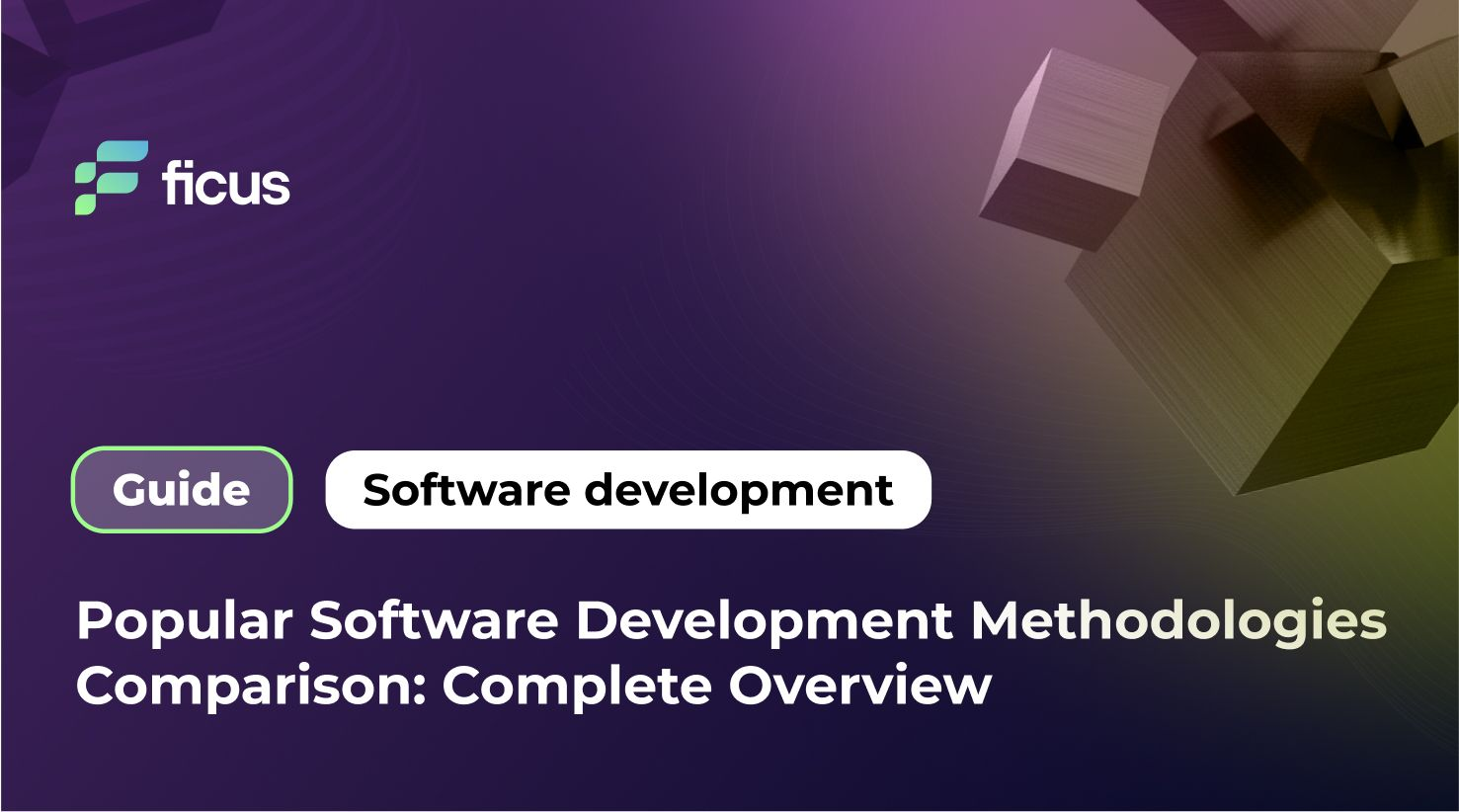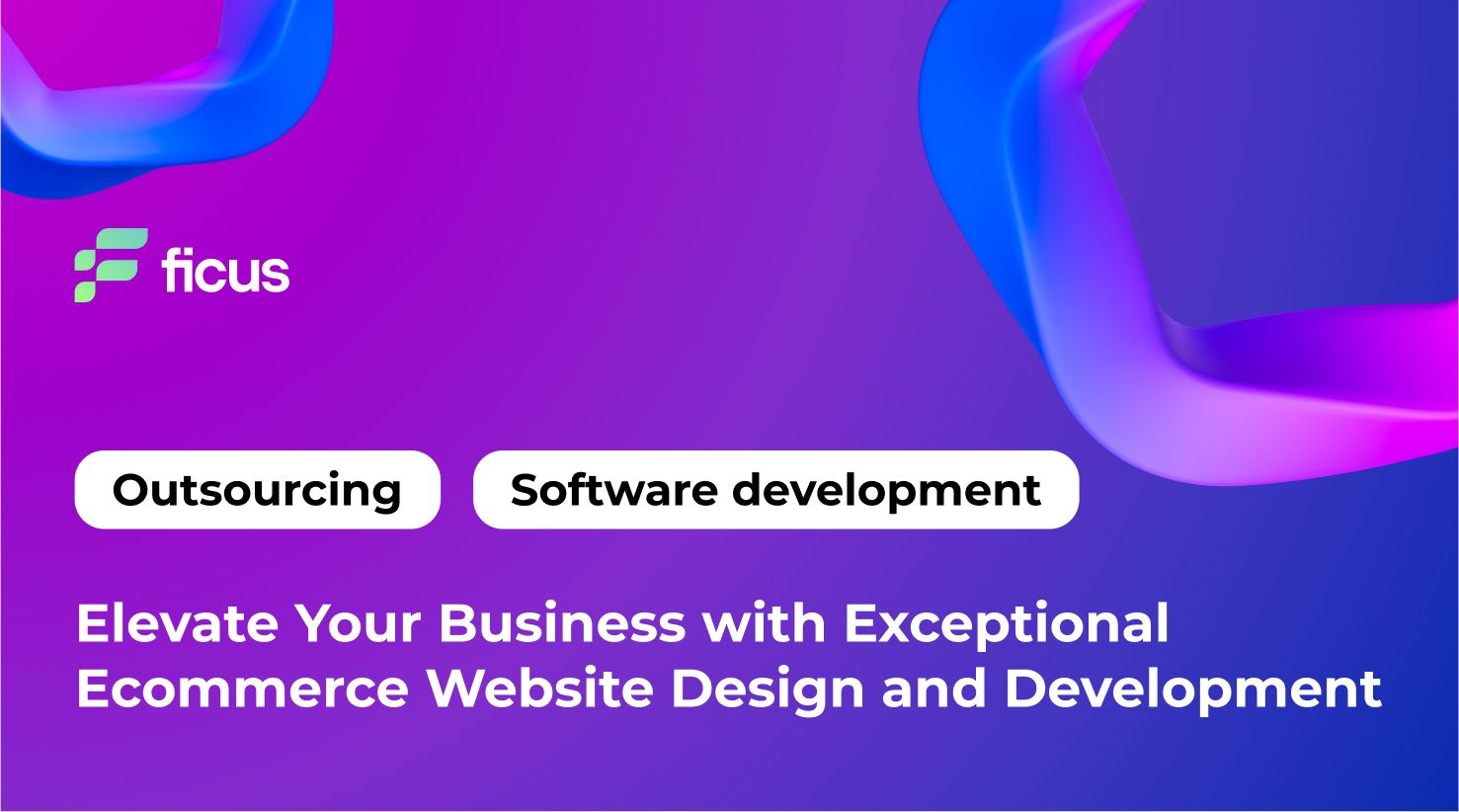Starting software development involves a critical choice – choosing the software development methodology that best suits the organization’s needs. Because there are many different software development methodologies, making individualized decisions based on team size, agility, business requirements, and organizational culture is critical. The development of methodologies such as Agile, which eliminates the limitations of Waterfall, emphasizes the dynamic nature of this industry. Understanding these methodologies is key to making informed decisions. This article serves as a comprehensive guide that discusses the latest types of software development methodologies and their advantages and disadvantages, which will help in choosing the best approach for successful project delivery.
- Overview of popular software development methodologies: Agile, Scrum, Waterfall, etc. Pros and cons of each methodology.
- The importance of choosing the right methodology for specific projects.
What is a software development methodology?
Let’s dive into the basics: Software development methodologies are the foundation of how development teams navigate the complex landscape of building software systems. These structured approaches, much like a carefully crafted plan in construction, help teams plan, execute, and manage. They provide systematic guidelines, practices, and procedures to ensure that projects meet deadlines, budgets, and quality criteria. These methodologies, including a diverse list of software development methodologies, dictate how tasks are organized, responsibilities are assigned, communication is facilitated, and progress is tracked. By following different software development methodologies, teams improve workflows, foster collaboration, increase productivity, and ultimately deliver software that meets customer expectations.

Why is choosing the right software development methodology important?
In addition to the “what” question, understanding the “why” is key in the field of software development methodologies. While it may be tempting for developers to intuitively prioritize tasks, this often leads to confusion, time overruns, and increased costs. Choosing the right approach is not just an advantage but a necessity for the project’s success and the team’s overall efficiency. A well-chosen methodology ensures structured and organized work, optimized resource allocation, risk mitigation, and effective communication throughout the software development lifecycle. Just as tools are tailored to specific tasks, software development methodologies offer customized approaches that significantly impact schedules, budgets, and software quality.
Popular Software Development Methodologies
Let’s explore the evolution of software development by focusing on the best software development methodologies. Uncover the chronological sequence and discover the different types of software development methodologies that have shaped the industry.
1. Waterfall Software Development Methodology
Developed by Dr. Winston Royce in 1970, the Waterfall methodology is a structured, sequential approach to project management within the Software Development Life Cycle (SDLC). It carefully progresses through each stage, embodying a logical evolution in the software development process.
A distinctive feature of this model is the restriction of backward movement after the completion of a stage, which has advantages and disadvantages in software development methodologies. Often the first to come to mind when discussing traditional models, the Waterfall approach remains relevant while avoiding obsolescence.
Pros of the Waterfall Model
Consistent requirements: Clarity of project goals early ensures a common understanding.
Effective project management: A clear structure and defined milestones simplify supervision.
Ideal for precision: Suitable for small projects with well-defined requirements in a list of software development methodologies.
Cons of the Waterfall Model
A one-way street: Limits adaptability, the model does not allow you to move backward through the stages.
Lack of user involvement: Excludes the client’s perspective, which prevents responsiveness to changes in the types of software development methodologies.
Problems with testing: A single testing phase after development is complete can increase the timeframe by complicating the processes of testing, fixing, and retesting across different software development methodologies.
2. Agile Software Development Methodology
Agile software development methodology means a revolutionary, iterative approach to software development that differs from the rigid constraints of the Waterfall model. Based on the 12 principles and four values of the Agile Manifesto, organizations that share these ideals actively implement Agile as their software development methodology. As one of the most commonly used software development models, Agile enables speed, flexibility, and cross-functional customization while promoting collaboration and communication among team members.
Pros of Agile Software Development Methodology
Faster time to market: Implementing a minimum viable product (MVP) ensures a quick time to market with the required features.
Customer focus: Priority is given to customer perspectives, requirements, and feedback, ensuring the product is relevant to the market.
Effective testing: Conducts Agile testing at the end of each sprint, reducing overall testing efforts and accelerating time to market.
Collaboration of cross-functional teams: Allows you to overcome isolation by promoting collaboration between designers, programmers, and testers.
Cons of Agile Software Development Methodology
Expanding the scope of work: Requirements can expand, leading to an increase in the amount of work throughout the project.
Limited documentation: The agile approach may lack comprehensive process documentation due to the constant changes in software requirements.
Challenges against templates: Potential pitfalls such as miscommunication, unclear requirements, and ignoring a steady pace can affect team productivity.
3. Scrum software development methodology
As we dive into the field of software development methodologies, the Scrum methodology emerges as a prominent agile framework. Widely represented in the list of software development methodologies, Scrum combines basic agile principles with a specific structure adapted for complex projects.
The core concept of Scrum is to create added value through clearly defined sprints that foster collaboration, transparency, and adaptability. This methodology involves cross-functional teams working together to create a potentially shippable product at the culmination of each sprint.
Pros of Scrum software development methodology
Flexibility and adaptability: By using an iterative approach, Scrum enables teams to respond effectively to changing requirements, providing flexibility in adjusting the project scope.
Transparency and visibility: With defined roles, ceremonies, and artifacts, Scrum improves communication and accountability by providing transparency in daily stand-ups, sprint reviews, and sprint retrospectives.
Continuous improvement: Scrum introduces a culture of continuous improvement by using sprint retrospectives to reflect on the process, identify areas for improvement, and make adjustments to improve productivity and quality.
Cons of Scrum software development methodology
Dependence on team self-organization: Scrum relies heavily on team self-organization for decision-making and management, making the methodology’s success dependent on the team’s skills, experience, and discipline.
Learning curve: Implementing Scrum can be a learning curve, especially for teams that are unfamiliar with agile methodologies, requiring a willingness to adapt to different software development methodologies successfully.
4. Lean Development
In the field of software development methodologies, Lean Development is becoming a prominent approach that focuses on maximizing customer value while minimizing waste. Inspired by the principles of lean manufacturing pioneered by Toyota, Lean Development continuously improves the development process by eliminating non-value-added activities and focusing on creating value for the customer.
Pros of Lean Software Development Methodology
Reduced waste: Lean software development eliminates waste and inefficiencies, streamlines workflows, and optimizes resource utilization to increase efficiency and reduce costs.
Focus on customer value: Closely focused on customer needs, Lean strongly emphasizes creating customer value by prioritizing the functions and activities that matter most.
Continuous improvement: By fostering a culture of continuous improvement, Lean encourages regular reflection, feedback gathering, and iterative adjustments to improve productivity and quality.
Want to hire a software development company?
Contact USCons of Lean Software Development Methodology
Limited documentation: Lean prioritizes working software over extensive documentation, which enables faster delivery but creates challenges for teams that need comprehensive documentation for regulatory compliance or knowledge sharing.
Risk management: Unlike some methodologies, lean software development may not have explicit risk management guidelines, requiring teams to respond to potential risks across different software development methodologies proactively.
5. Spiral Model
The spiral model stands out from other software development methodologies because it prioritizes early risk identification and mitigation. Positioned as a hybrid between the iterative development of Agile and the sequential linearity of Waterfall, the spiral model defines features as complete after they have passed customer evaluation, adapting to changes through a linear approach.
Pros of the Spiral Model
Flexible iterations: The spiral model easily adapts to new and changing requirements through iterative development, making it adaptable to changing project needs.
Prototyping: An active focus on prototypes reduces the likelihood of product failures by providing a solid foundation for the final product.
Integrate customer feedback: At the end of each development cycle, customer feedback is taken into account, ensuring that market expectations are met early on.
Risk management: The spiral model effectively manages project risks by developing risky features before less risky ones.
Cons of the Spiral Model
Cost considerations: The model can become costly for small, low-risk projects, potentially overwhelming resources.
Deadline and budget risks: The uncertain nature of the spiral cycle creates risks of not meeting deadlines and budget constraints.
Compliance with standards: Strict adherence to the standards and best practices of the spiral model is imperative to ensure development reliability.
Documentation overhead: Due to the large number of intermediate steps, a large amount of documentation is required, adding complexity to the list of software development methodologies.
How do you choose the right software development methodology?
Choosing the right software development methodology is key to project success. Early selection of the most appropriate software development methodology is critical to project success. Start with a comprehensive understanding of the project goals, assessing the initial requirements, and determining the potential for changes to the end functions and technology stack. In addition, assess the team’s skills and align them with the collaborative and adaptive mindset required by modern methodologies such as Agile. Stakeholder input, organizational culture, and project needs play a crucial role. Thinking about these aspects allows business leaders to make informed choices that tailor the types of software development methodologies to the project’s unique requirements. Whether you choose Waterfall, Agile, feature-oriented development, Lean, rapid application development, the spiral model, or the scalable Agile framework, the key is to ensure that it is aligned with the business goals and specifics of the project.
Final words
So, the world of software development methodologies is vast and diverse, offering a range of approaches to meet different project requirements. From the structured sequence of Waterfall to the dynamic and adaptive nature of Agile, each methodology has its own set of benefits and challenges. In this comprehensive overview, we’ve delved into the ins and outs of popular software development methodologies, providing insight into their advantages, disadvantages, and suitability for various projects. Whether you prioritize the consistency of the Waterfall model or the agility of Agile, understanding the nuances of different software development methodologies is crucial to a successful project.
Ficus Technologies can play a key role in unlocking the full potential of these methodologies. Our experience in navigating the intricacies of software development methodologies guarantees customized solutions for your specific needs. Whether you want to optimize processes with Agile or implement a risk management approach with the spiral model, Ficus Technologies is a trusted partner in optimizing your software development journey.
To implement a new software development methodology in your team or organization, start with a thorough assessment of current processes, team dynamics, and project requirements. Clearly communicate the reasons for the change, emphasizing the benefits and drawing attention to potential challenges. Hold training sessions to familiarize the team with the new methodology and ensure everyone understands their roles. Start with a pilot project to test the methodology in a controlled environment. Encourage open communication and feedback throughout the transition, fostering a culture of continuous improvement. Track progress, promptly address issues, and celebrate achievements to motivate and reinforce the implementation of the new methodology.
Yes, there are several common mistakes to avoid when implementing a new methodology. First, neglecting proper training and communication can lead to misunderstandings and resistance. Failure to align the methodology with the organization’s goals and culture can hinder its acceptance. Implementing changes too quickly without a gradual transition can exhaust the team. Ignoring feedback and not adapting to changing needs can lead to inefficiency. Lack of management support and involvement can also hinder successful implementation. Finally, underestimating the importance of measuring and celebrating small wins can be detrimental to morale. Proactively addressing these issues will help ensure a smoother and more successful implementation of the new methodology.









I want to express my appreciation for the article. The author’s clear explanations, concise summaries, and practical examples make it easy for readers to grasp the nuances of each methodology. This article serves as a valuable reference for developers and project managers seeking guidance in choosing the most suitable approach for their projects.